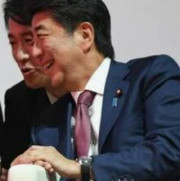Ma Ying-jeouat, a 57-year-old graduate of the Harvard University, received more than 58 % of votes that is 17% more than his main contender Frank Hsieh from the ruling Democratic Progressive Party. Hsieh likewise Ma spoke for closer economic ties with the People’s Republic of China but at the same time blamed on his contender for excessive good feeling to Beijing, and named himself a man capable of defending the Taiwan’s interests better than anybody else.
A key subject of election struggle was riots in Tibet. In this situation, Ma likewise his contender spoke in favor of boycott of the Olympics in Beijing provided the unrest in Tibet escalates however later he explained that he is not going to “flatly insist on it”. In turn, Hsieh claimed that his contender may convert Taiwan into “the second Tibet”. But electors were not convinced.
It’s irony of fate that the victory of the successor of Generalissimos Chiang Kai Chek who escaped to Taiwan in 1949 from the victorious troops of Mao Zedong, is welcomed with expressed pleasure in Beijing. Former President Chen Shui-bian, a predecessor of Ma Ying-jeouata, clearly strived for proclamation of independence that induced acute allergy reaction of Beijing.
On the initiative of Chen Shui-bian two referendums on Taiwan membership in the United Nations were held in the island concurrently with the presidential election. Taiwan was expelled from the UNO in 1971. During one of the referendums that was called provoking by its opponents and criticized by many countries inclusive of even the USA, the people were requested to answer if Taiwan should apply to the UNO under a name of Taiwan instead of the official name of “the Republic of China”.
To full satisfaction of Beijing, the referendum failed. Application to the United Nations under the name of Taiwan was supported by about 5.5 million people while a threshold is 8.5 million. Commenting on the results, the Chinese authorities called them as an additional evidence that “the efforts of splitters in favor of “independent Taiwan” are not supported by the people”.
Immediately after declaration of his victory Ma Ying-jeouat at a press-conference in Taipei claimed that he will never support “independence of Taiwan de-jure”. He expressed his hope for “elimination of political obstacles so that the Association of Relations between Taiwan Strait Sides and Fund of Exchanges Across Taiwan Strait could continue functioning normally”. The new President recognized that the problem of sovereignty is the most significant factor affecting the bilateral relations, and emphasized that mutual recognition of independence by China and Taiwan is impossible. Instead, Ma proposes a concept of “mutual non-denial”.
According to Ma Ying-jeouat, the solution of China-Taiwan relationship problem needs primary attention to be paid to free travel of people from mainland China to Taiwan, access of Taiwanese enterprises to the mainland market and priority signing of agreements on economic cooperation and provision of safety and security in the Taiwan Strait.
Besides the President-elect claimed that he is ready to conclude a peace agreement with China provided China dismantles more than 1000 missiles aimed at Taiwan. Ma Ying-jeouat let the journalist see that he is not going to visit mainland China in the near future. As quoted to him, he wants to settle the existing problems, and will examine expediency of a top-level visit to China.
Experts say that Ma’s victory at the election was expectative and consistent. Many Taiwaneses believe that closer ties with mainland China will revive the economy of the island that experiences stagnation for more than 8 years. Many electors also liked the Ma’s promise to promote direct flights to the mainland and liberate restrictions on business contacts with China up to establishment of “a common market”. It is expected that Ma Ying-jeouat will perform gradual transition from the policy of his predecessor when the relations with China were strained. At the same time, he will try to convince those Taiwaneses who are concerned over the prospects of “gradual capitulation” to Beijing that the new government will firmly defend national interests of the island.
No official changes in the stand with respect to the problem of Taiwan are expected after the presidential election on the other side of the Taiwan Strait. China still considers Taiwan its organic part and formally reserves the right to use force if the authorities of the island make a decision to officially proclaim independence. For example, recently Chinese Prime Minister Wen Jiabao said addressing the session of the Chinese Parliament: “We will not let anybody separate Taiwan from the Motherland at any pretext and by any means”.
Meanwhile, not abandoning the power politics towards Taiwan and diplomatic effort to isolate it in the international arena, Beijing does not deny political negotiations subject to certain conditions, and widely uses economic and humanitarian contacts to achieve its goals.
However, there is a third party in the Taiwanese problem represented by the USA, which declared itself “a guarantor of island security” in 1949. Yet George Bush officially welcomed the victory of Ma Ying-jeouat as “a fresh opportunity for both parties to get in contact with each other to peacefully resolve their controversies”, the USA is evidently interested in “preservation” of the Taiwanese problem. Many officials in Washington believe that it is unwise to remove “the Taiwanese splinter” out of the Chinese body whereas it may be used for permanent pressure on Beijing and weakening of its international positions.
Nevertheless, it may be expected that the Kuomintang victory at the election in Taiwan in prospect may facilitate détente in the relations between Taiwan and mainland China. However, the road to the final solution of this problem still looks very long.









